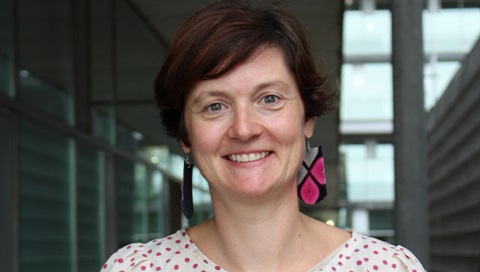Isabelle Anguelovski, new ICREA Research Professor at ICTA-UAB

23/06/2017
An ICREA senior position aims to boost and develop research and scientific, humanistic and technological knowledge in benefit of society. Isabelle Anguelovski has been distinguished for her excellent research in the field of Social and Behavioural Sciences.
At the intersection of urban planning and policy, social inequality and development studies, Anguelovski's research examines the extent to which urban plans, policy decisions, and socio-environmental interventions contribute to more just, resilient, healthy, and sustainable cities. She also studies how community groups in distressed neighborhoods contest the existence or exacerbation of environmental inequities as a result of urban (re)development processes and policies. Much of her work takes place in urban marginalized neighbourhoods in Europe, the UnitedStates, Latin America, South Africa, and South East Asia.
Anguelovski is a social scientist trained in urban and environmental planning (PhD, MIT, 2011), nonprofit management (Harvard University, 2004), international development (University de Paris-1 Sorbonne, 2001), and political studies (Science Po, 2000). Before starting her PhD in 2006, she held several positions in international development NGOs in France and the US.
As part of collaborative EU and international research projects, she studies the extent to which urban greening processes lead to environmental gentrification and "green locally unwanted land uses" (GREENLULUs, an ERC funded project) in historically marginalized neighborhoods, how municipalities protect vulnerable communities from climate risks and inequality, what opportunities and constraints exist when transitioning towards a low-carbon economy within European urban regions, and how the governance of nature-based solutions for urban planning addresses (or exacerbates) environmental injustices (H2020 Naturvation project).